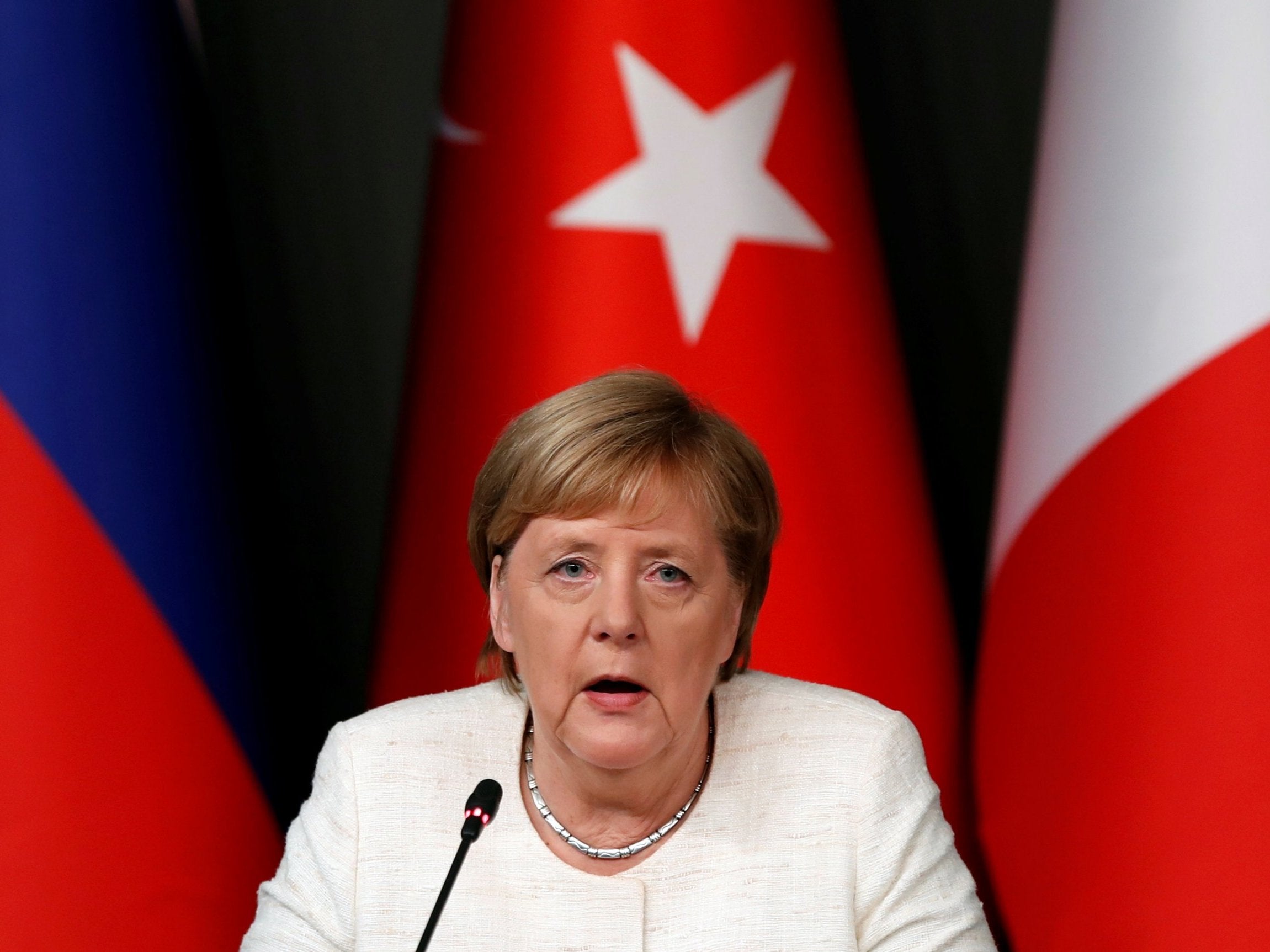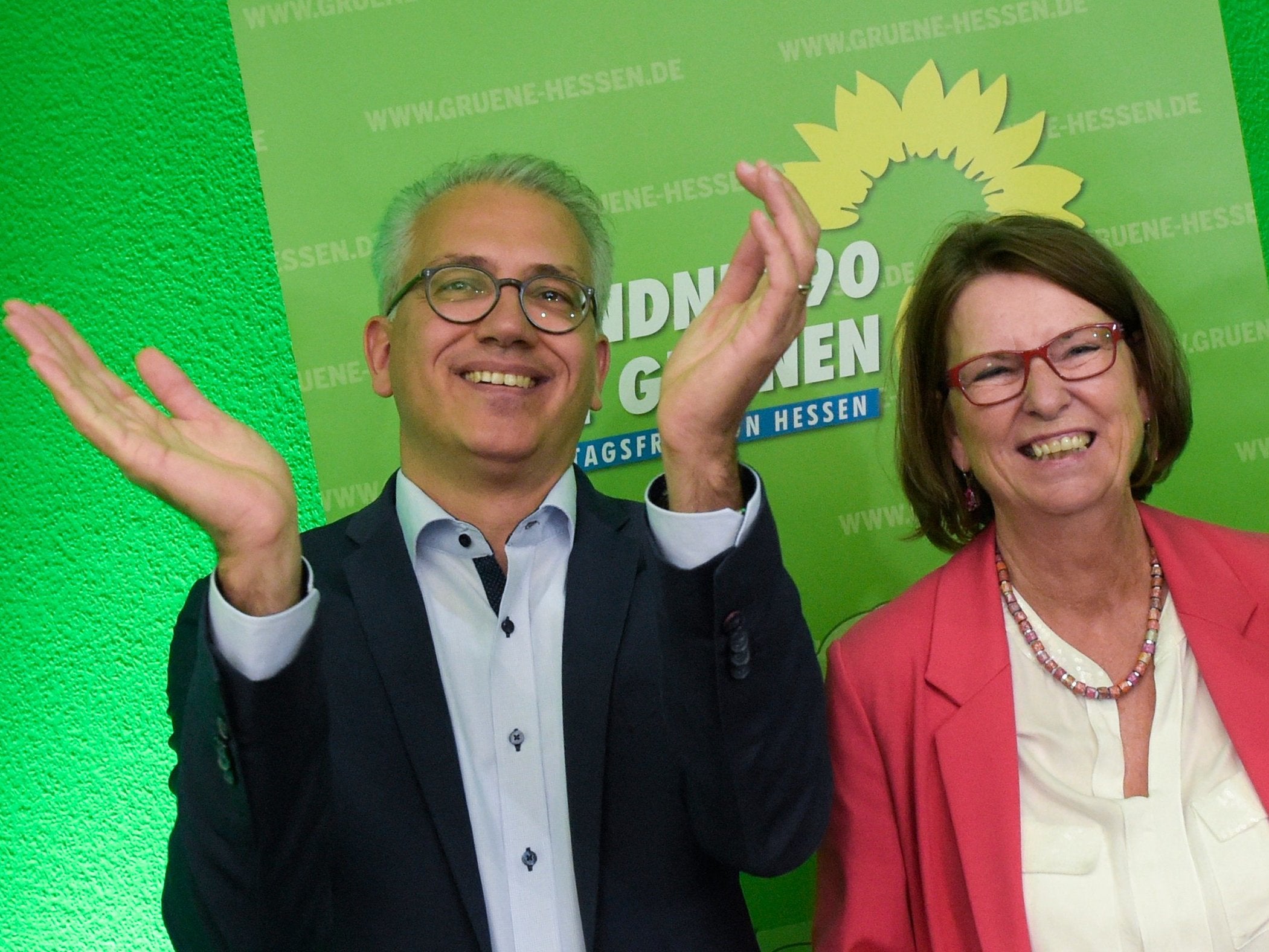Merkel punished in German state elections as Greens double share of vote in Hesse
Chancellor's centre-left governing partners on course for dismal result

Your support helps us to tell the story
From reproductive rights to climate change to Big Tech, The Independent is on the ground when the story is developing. Whether it's investigating the financials of Elon Musk's pro-Trump PAC or producing our latest documentary, 'The A Word', which shines a light on the American women fighting for reproductive rights, we know how important it is to parse out the facts from the messaging.
At such a critical moment in US history, we need reporters on the ground. Your donation allows us to keep sending journalists to speak to both sides of the story.
The Independent is trusted by Americans across the entire political spectrum. And unlike many other quality news outlets, we choose not to lock Americans out of our reporting and analysis with paywalls. We believe quality journalism should be available to everyone, paid for by those who can afford it.
Your support makes all the difference.Angela Merkel and her governing party allies have lost significant support in a state election in Germany while the Greens' share of the vote doubled.
Projections showed Ms Merkel's conservatives heading for an extremely lacklustre win in the vote for the central Hesse region's state legislature.
Her centre-left governing partners were on course for a dismal result, running neck-and-neck with the Greens for second place.
The result has prompted calls for the chancellor's administration to get its act together quickly.
Ms Merkel's conservative Christian Democratic Union (CDU) was defending its 19-year hold on Hesse, previously a stronghold of the centre-left Social Democrats (SPD), the chancellor's federal coalition partners in Berlin.
There was widespread pre-election speculation that a disastrous result for either or both parties could further destabilise the national government, prompting calls for the Social Democrats to walk out and possibly endangering Ms Merkel's own position.

Andrea Nahles, the Social Democrats' leader, said that “the state of the government is unacceptable".
She said her party would insist on Ms Merkel's governing coalition agreeing on “a clear, binding timetable” for implementing projects, and that how that is implemented ahead of an already-agreed midterm review next autumn will show “whether we are still in the right place in this government".
Hesse's conservative governor, Volker Bouffier, told supporters that “the message this evening to the parties in the government in Berlin is clear: people want less argument, more objectivity, more solutions."
Ms Merkel's chief of staff, Helge Braun, said that the national government must now pull together and “show we are solving the problems that really move people."
Projections for ARD and ZDF public television, based on exit polls and partial counting, gave the CDU 27-28 per cent support and the centre-left Social Democrats about 20 per cent.
When Hesse last elected its state legislature in 2013 - on the same day that Ms Merkel was triumphantly elected to a third term as chancellor - they won 38.3 per cent and 30.7 per cent, respectively.
That would be the worst result in the region for the Social Democrats since the Second World War.
There were gains for the Greens, who were roughly level with Social Democrats at nearly 20 per cent - compared with 11.1 per cent five years ago.
And the far-right Alternative for Germany was on course to enter the last of Germany's 16 state parliaments with more than 12 per cent.
The pro-business Free Democrats were seen winning above 7 per cent and the Left Party around 6.5 per cent.
AP
Join our commenting forum
Join thought-provoking conversations, follow other Independent readers and see their replies
Comments